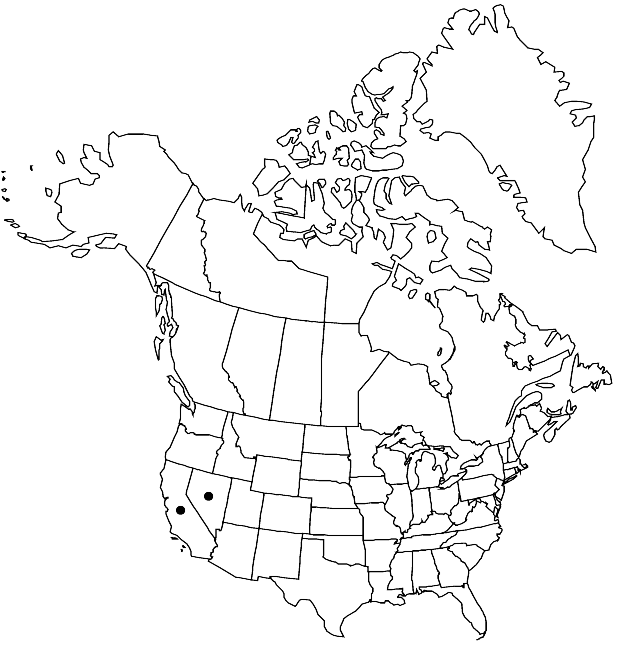Draba asterophora
Amer. J. Bot. 4: 263. 1917.
Perennials; (loosely cespitose); caudex branched (somewhat surculose, with persistent leaf bases, branches sometimes terminating in sterile rosettes); scapose. Stems unbranched, 0.3–1.1 dm, glabrous throughout or sparsely pubescent proximally, trichomes (2–)4-rayed, 0.1–0.3 mm. Basal leaves rosulate; petiolate; petiole obsolete, margin rarely ciliate proximally; blade (somewhat fleshy), broadly obovate to suborbicular or spatulate, 0.4–1.4(–1.7) cm × (2–)3–6(–7) mm, margins entire, surfaces pubescent, trichomes stalked, cruciform, and 2-, 3-, or 5-rayed, 0.2–0.6 mm. Cauline leaves 0 (or 1, as a bract). Racemes (5–)8–20(–27)-flowered, usually ebracteate, rarely proximalmost flowers bracteate, elongated in fruit; rachis not flexuous, glabrous. Fruiting pedicels horizontal to divaricate-ascending, straight or curved upward, 3–9 mm, glabrous. Flowers: sepals oblong, 3–4 mm, glabrous or sparsely pubescent, (trichomes subapical, short-stalked, 2–4-rayed); petals bright yellow, oblanceolate, 5–7 × 1.5–2.5 mm; anthers ovate, 0.5–0.6 mm. Fruits lanceolate-ovate to broadly ovate or oblong, slightly twisted or plane, strongly flattened, 5–11(–14) × (3.5–)4–6 mm; valves glabrous or, rarely, puberulent, trichomes simple and short-stalked, 2- or 3-rayed, 0.05–0.3 mm; ovules 12–18 per ovary; style 0.2–1.6(–2) mm. Seeds (winged), ovate, 1.8–2.8 × 1.2–2 mm; (wing 0.5–1 mm wide). 2n = 40.
Phenology: Flowering Jun–Aug.
Habitat: Granitic rock outcrops, talus, gravelly soil
Elevation: 2600-3300 m
Discussion
C. L. Hitchcock (1941) and R. C. Rollins (1993) divided Draba asterophora into two varieties based on minor differences in style and fruit lengths. These do not appear to define genetically discrete taxa. The species apparently is restricted to El Dorado County, California, and the Carson Range in Washoe County, Nevada.
Selected References
None.
